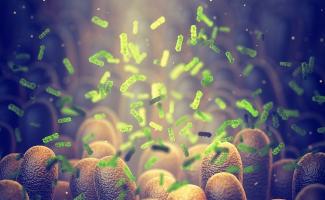As part of the research course, this training offers a modern approach to methods and techniques applied to infectious diseases.
Access to training
The Master's degree in Health Biology Research is intended for students in the scientific and health fields.
See the application conditions and the administrative registration procedure.
Objectives of the training
The speciality is adapted to the challenges of the present time - emergence or revival of infectious diseases, particularly vector-borne diseases, resistance to anti-infectious agents - thanks to integrated teaching and a conceptual deepening of infectious diseases.
An important part of the teaching is devoted to the study of the human microbiota, both normal and pathological, and its possible manipulation for therapeutic purposes.
The three main lines of teaching are :
1. Medical Entomology and Emerging Diseases
The relationship between human infections and associated insects, bacteria, parasites or viruses: lice, ticks, mosquitoes, arboviruses, borreliosis, rickettsiosis, leishmaniasis, malaria, emerging and epidemic pathogens, mycobacteria, multi-resistant bacteria and paleomicrobiology.
2. Analysis and manipulation of the microbiota
Study and characterization of infectious agents using the most advanced techniques and methods (metagenomics, culturomics, transcriptomics, proteomics, taxonogenomics), for the comparison of normal and pathological microbiota, and their manipulation for therapeutic purposes.
3. Anti-infectious therapy and HIV
Study of resistance mechanisms, reservoirs, the use of new or old molecules, and new therapeutic pathways in the treatment of HIV, malaria and nosocomial infection bacteria.
Opportunities
The research master's programme primarily prepares students for the pursuit of a doctoral thesis in science. Various scholarships and funding are offered in the laboratories of the Health campus.
Projects by foreign students aiming to set up research laboratories on infectious diseases in their home countries are encouraged in conjunction with the Institut hospitalo-universitaire Méditerranée Infection.
Obtaining a master's degree and a doctoral thesis in science is also a privileged means of access to management careers in medical, pharmaceutical and scientific disciplines, in higher education, research, hospitals and industry.
Objectives of the training
2. Analysis and manipulation of the microbiota
Study and characterization of infectious agents using the most advanced techniques and methods (metagenomics, culturomics, transcriptomics, proteomics, taxonogenomics), for the comparison of normal and pathological microbiota, and their manipulation for therapeutic purposes.
3. Anti-infectious therapy and HIV
Study of resistance mechanisms, reservoirs, the use of new or old molecules, and new therapeutic pathways in the treatment of HIV, malaria and nosocomial infection bacteria.
Opportunities
The research master's programme primarily prepares students for the pursuit of a doctoral thesis in science. Various scholarships and funding are offered in the laboratories of the Health campus.
Projects by foreign students aiming to set up research laboratories on infectious diseases in their home countries are encouraged in conjunction with the Institut hospitalo-universitaire Méditerranée Infection.
Obtaining a master's degree and a doctoral thesis in science is also a privileged means of access to management careers in medical, pharmaceutical and scientific disciplines, in higher education, research, hospitals and industry.
Training ground
Internships can be carried out in :
- any research unit related to microbiology, infectious diseases and microbiota - provided that the laboratory is labelled and that the supervisor in charge has the authorisation to direct the research.
- in the industrial environment, or abroad - after authorization from the person in charge of teaching.
Consult a list of research units and laboratories hosting internships in Aix-Marseille and in France (non-exhaustive list).
Contact for training managers
Persons in charge of the biology and health field
Professor Pierre MORANGE
Email: pierre-emmanuel.morange@univ-amu.fr
Professor Christophe DUBOIS
Email: christophe.dubois@univ-amu.fr
Tel : 04 91 32 46 80
Address: Inserm URM-S-1076, Faculty of Pharmacy
Head of Infectious Diseases and Microbiota Specialization
Professor Bernard LA SCOLA
Email: bernard.la-scola@univ-amu.fr
Address: URMITE UMR 7278, Institut Méditerranée Infection - IHU

